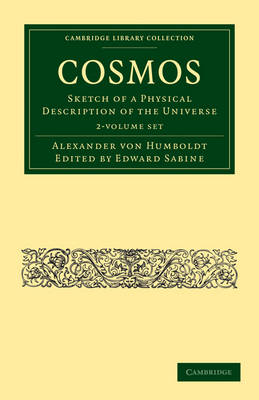Polymath Alexander von Humboldt (1769-1859), a self-described 'scientific traveller', was one of the most respected scientists of his time. Humboldt's wanderlust led him across Europe and to South America, Mexico, the U.S. and Russia, and his voyages and observations resulted in the discovery of many species previously unknown to Europeans. Originating as lectures delivered in Berlin and Paris (1827-1828), his two-volume Cosmos: Sketch of a Physical Description of the Universe (1845-1860) represented the culmination of his lifelong interest in understanding the physical world. As Humboldt writes, 'I ever desired to discern physical phenomena in their widest mutual connection, and to comprehend Nature as a whole, animated and moved by inward forces'. Volume 1 explains celestial and terrestrial phenomena, while Volume 2, demonstrating Humboldt's interest in representations of the natural world, examines poetic descriptions of nature, landscape painting, and how the physical universe was comprehended through history.
- ISBN13 9781108013949
- Publish Date 31 October 2010
- Publish Status Active
- Publish Country GB
- Imprint Cambridge University Press
- Pages 1010
- Language English
